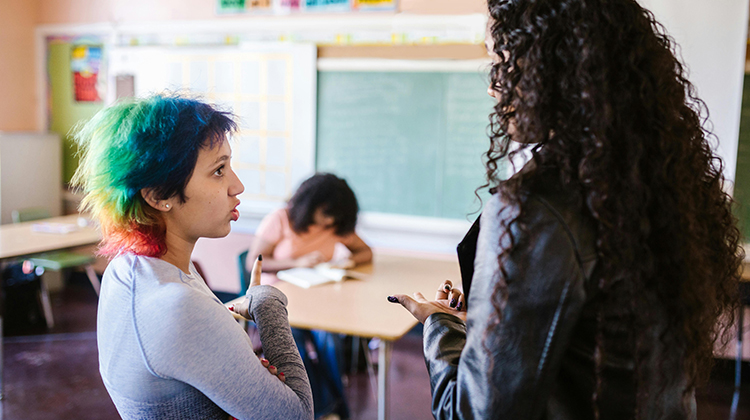Link Between being Sociable and Success at School

Students with social-emotional confidence are more engaged when it comes to schoolwork, suggesting students should be supported in growing their social competence to form better homework habits and experience lower levels of behavioural disengagement at school.
Experts recommend enhancing students' social-emotional confidence by cultivating strong teacher-student relationships - such as by dedicating time and resources to each student, and actively listening to and implementing their ideas.
The University of New South Wales Sydney study, conducted through online surveys with students and their parents, demonstrated that secondary school-aged children who perceived themselves as being more confident in their social-emotional skills were more likely to display signs of positive behaviour and were more open to completing learning tasks, such as homework.
Undertaken by Associate Professor Rebecca Collie of UNSW Sydney, the 'Social-emotional need satisfaction and students’ academic engagement and social-emotional skills' study surveyed students and their parents across Australia on questions relating to their own self-perceptions and experiences in their learning.
Building upon previous research, Assoc Prof Collie said the study sought to understand the role of social-emotional confidence by identifying specific factors relevant to student-reported behavioural disengagement and parent reports of students’ homework practices.
"Academic confidence is well recognised as being a driver of positive academic outcomes among students, such as academic engagement and achievement," Assoc Prof Collie said.
"Research also shows that social-emotional confidence is linked with positive social-emotional outcomes like well-being and prosocial behaviour.
"One important question that remains largely unexamined, however, is the role that social-emotional confidence plays in relation to academic outcomes.
"Is there crossover between these domains? This is important to examine because learning is both a cognitive and social-emotional act.
"Understanding how social-emotional confidence is linked with academic engagement is critical for ensuring we best support students to succeed at school."
Upon analysing the responses received from participants, Assoc Prof Collie found that social-emotional confidence was linked with greater homework application.
"This means that students who feel confident in their social-emotional interactions are reported by their parents as putting more effort into doing their homework to the degree expected by their teachers.”
Social-emotional confidence was associated with lower behavioural disengagement, students who feel confident in their social-emotional interactions are less likely to be distracted or disinterested in the classroom.
Associate Professor Rebecca Collie is Scientia Associate Professor of Educational Psychology in the UNSW School of Education. She conducts research in the areas of motivation, wellbeing, and social-emotional development. Her work has been recognised with several honours including an Australian Research Council DECRA Fellowship.